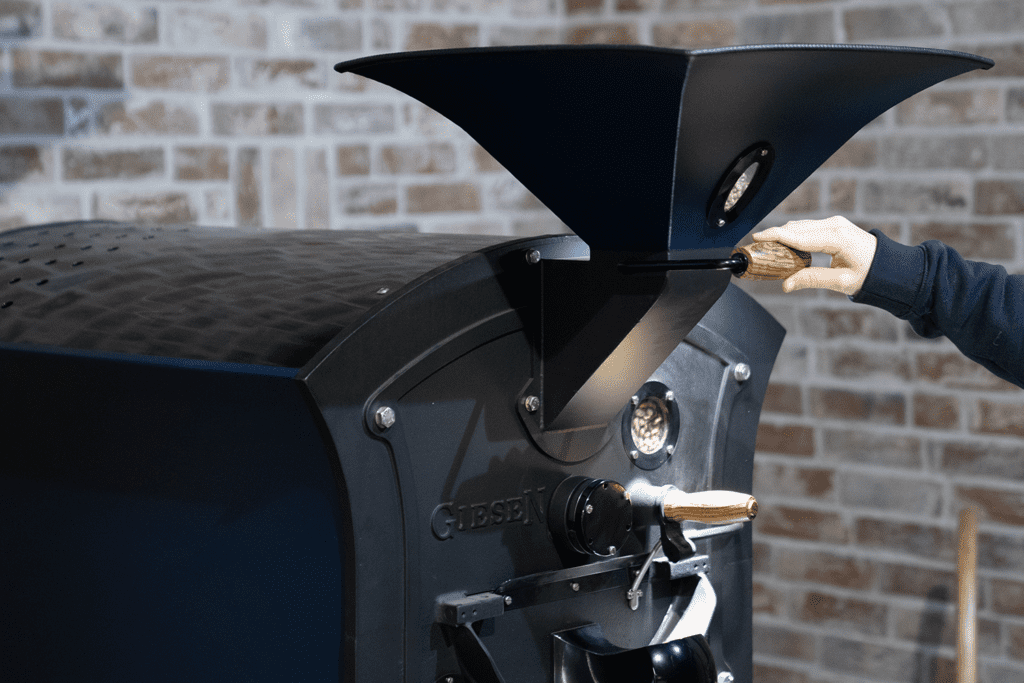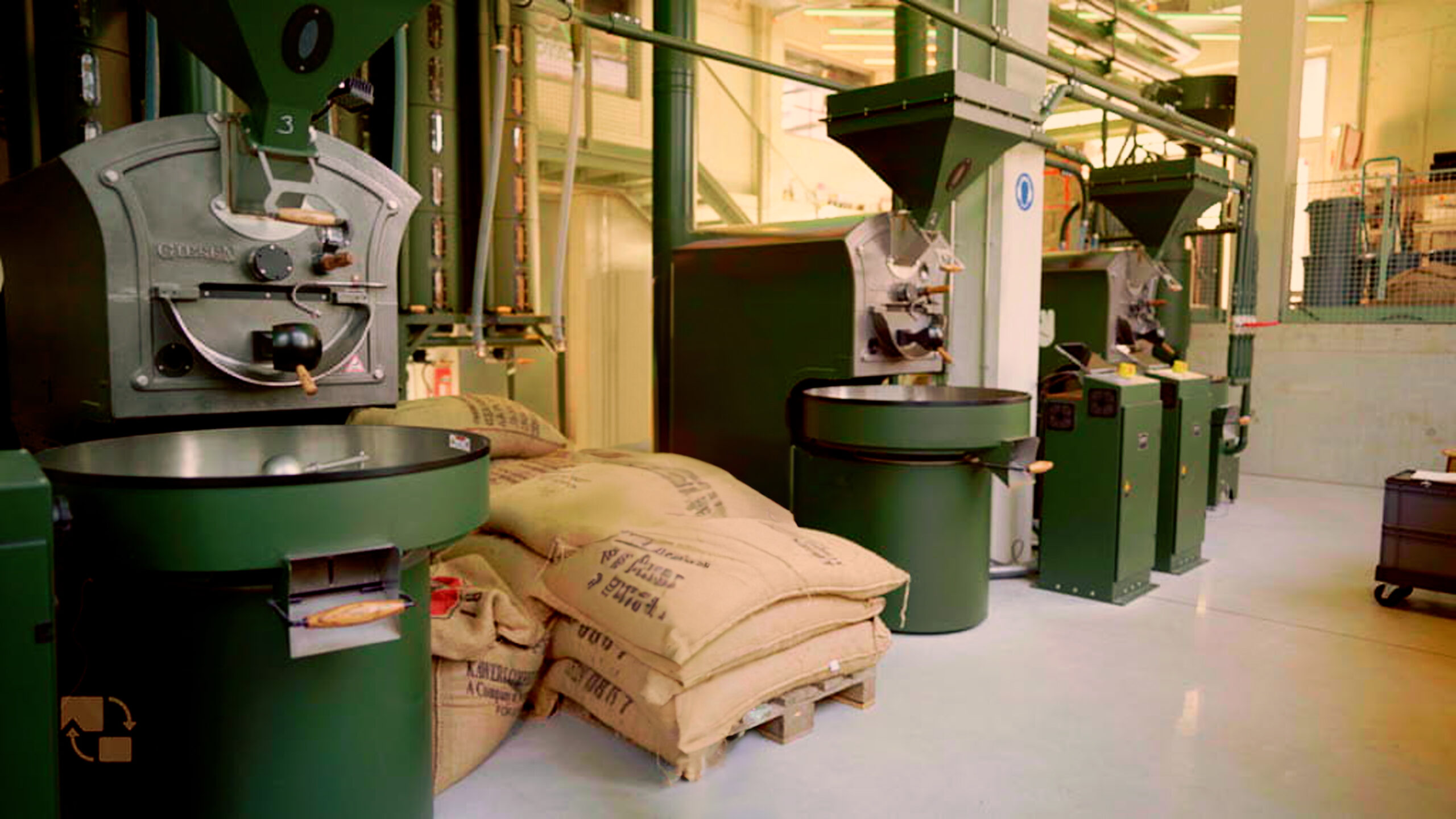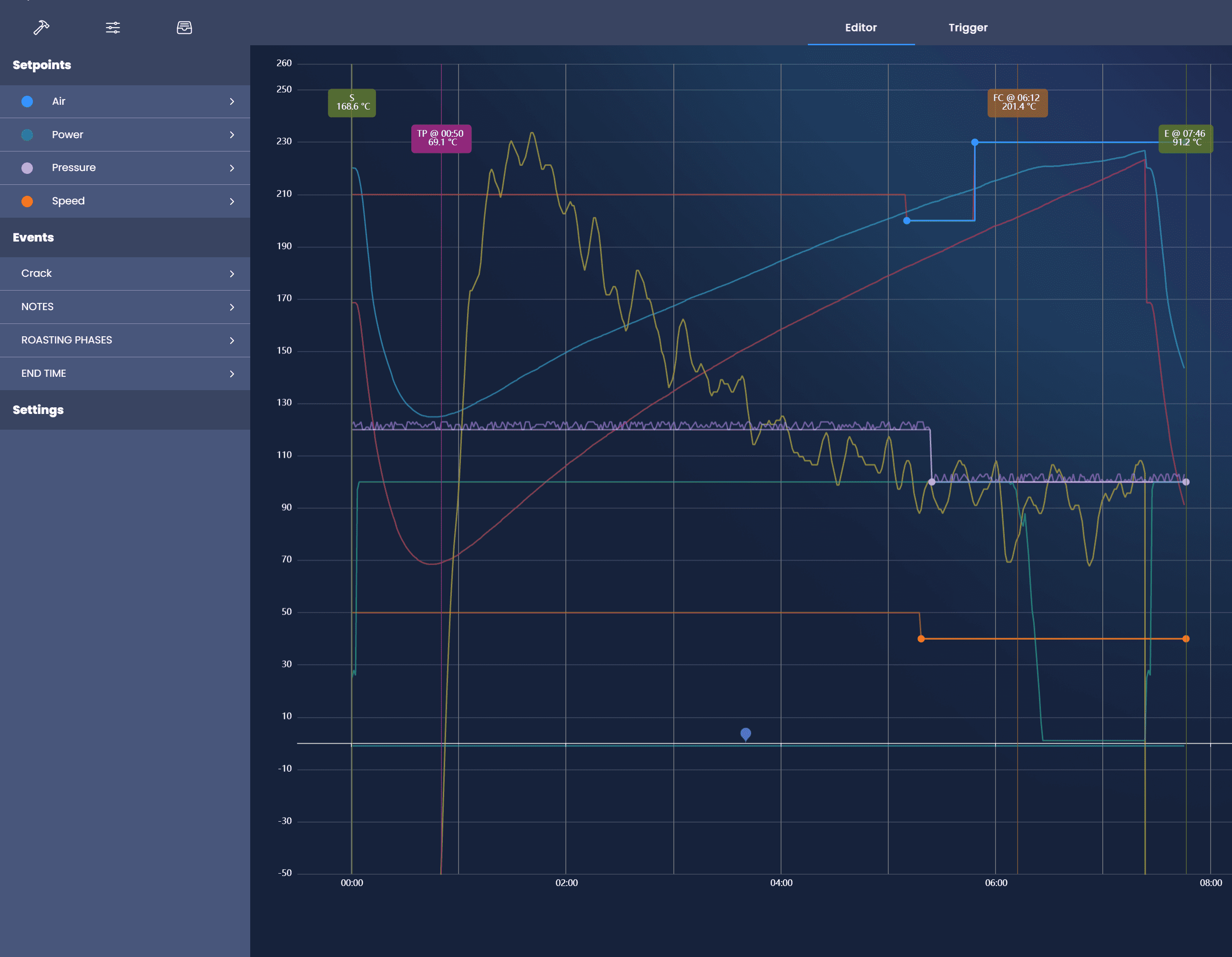Everyone drinks coffee, this is a moment of peace, an energy boost or simply to connect with someone. But who are the people roasting your coffee? You’re listening to the Giesen Roastcast, where we talk about everything that has to do with roasting and your business in the coffee industry. Cisca roasted coffee year in, year out for over half a decade. With her own coffee roastery and as an ambassador of Giesen Coffee Roasters, she wants to show you what it means to roast coffee for a living. So grab a cup of coffee, sit back and relax. This is the Giesen Roastcast.
In this episode of the Roastcast, Hugh Kelly, triple winner of the Australian Barista Championships, talked about what it’s like to win and how you achieve such a high level.
You can also listen to the episode here:
Summary Roastcast 4 – Hugh Kelly
Cisca: ‘Congratulations! This march you won the Australian Barista Championships for the third time. For people like me who never participated in a championship, can you describe the moment of victory?’
Hugh: ‘This year was a weird one. It’s this very strange feeling of knowing it all will work out. I had not nervous at all. I was completely calm and when they called my name, I had to force myself to react. It was very strange. I have no idea why that was, I can’t explain it. Maybe because it’s the third time or something.’
Cisca: ‘Okey, so the third time was weird, and how was the first time you won?’
Hugh: ‘The first time was super emotional. The second time was different because I kind of felt like I needed to prove something to myself. Mostly because of mistakes I’ve made the previous year. So, it’s always different you never know how you’re going to react.’
Cisca: ‘How do you achieve such a high level that you can participate at all?’
Hugh: ‘I guess when I was in university, I was always good at speaking to people. I never really had any fear of doing that. In my first barista competition, I was completely underprepared. I sort of managed somehow to do okay. That year, someone told me I speak well. I guess that was the motivation to come back and prepare properly. It took me 7 years to get to win Australian. And each year there were new things I had not thought about or paid attention to.’
Cisca: ‘Can you give an example of that?’
Hugh: ‘Early on, it was simple things like the organization. Having proper lists and having everything documented, allows you to do your preparations on the day leading up to your practice times a lot easier. The next year, I opened the bag of coffee and exposed it to too much air. Something like this happened every year and you become more and more aware of all the things that you can improve each year. That is kind of exciting.’
Cisca: ‘So, what you are telling me right now is that it’s all in the details?’
Hugh: ‘Absolutely. You can have amazing coffee one day but you also need to know how to control it and how to fix it. A part of it is building a vocabulary. So, if you are a barista and you taste sour acidity or low sweetness, you know you are going to adjust this and fix it. So you have this vocabulary. Although you don’t have the vocabulary until you have made all the mistakes and gain experience. Everyone can produce an amazing coffee one day out of 50 but producing amazing coffee every day consistently, that’s super hard.’
Cisca: ‘So, if you want to compete on such a high level, you need to keep practicing and keep making mistakes so you can fix them. It basically is the same with roasting. If I have a roasting profile and it doesn’t work out the way I want to, then you must know where you make the mistakes so you can correct them.’
Hugh: ‘Absolutely. It’s like you see stuff and record them. It takes a long time, but it’s super exciting when you have it all clicked in and know exactly what you are doing.’
Cisca: ‘If you want to produce it like 50 times a day at the same level, you need certain skills I presume?’
Hugh: ‘You obviously need to have good taste. Besides that, you must be completely open-minded. It’s a huge mental shift to get yourself to another level. I spend a long time just on my mind to understand and look at things more openly. It’s so easy to get tunnel vision. Sometimes you need to step back. So chancing your mind to be open to things and not get stuck in details sometimes is really important.
Another important thing is being able to take on criticism. That takes a lot of learning. Earlier on in competition preparations, you do run-throughs and people give feedback, and sometimes you kind of want to defend yourself. That’s with anything right. If someone criticized the things you’ve done, the instant thing is defending yourself.’
Cisca: ‘Yes, I guess it is natural to defend yourself.’
Hugh: ‘Absolutely, but you must learn to switch that off and know that it isn’t personal. Defending yourself because of criticism is the least beneficial thing you can do when you are getting feedback for competitions. So, no matter how illogical that feedback is to you, there is something there that you can learn from.’
Cisca: ‘Interesting. I’ve never looked at it that way. It is with most people who are doing topsport. They always compete against themselves. So they always make progress with their own mindset instead of being the best sportsmen or barista there is.’
Hugh: ‘Yes and this carries through into life in general. I guess competitions get criticized a lot but what people don’t realize, is that they are teaching you life skills like persistence and attitude, and work ethic. It’s teaching you to go out into the world and interact with the world in a way that is positive. If you keep doing the right things and make the right adjustments, you find yourself going into the world having better interactions with people. Moving people emotionally that’s going to have a bigger impact on you and what you do in coffee.’
Cisca: ‘And how important is participating in such a competition for you?’
Hugh: ‘I think it’s vital to development. There is so much growth and every year we compete, we learn something about roasting and how we make coffee. So, every single time, when we have people competing, we chance roast profiles, and our coffee will taste better. That’s extremely exciting for me.’
Cisca: ‘How do you deal with competition?’
Hugh: ‘The way I see it, if you’ve done enough and did the best you can, then that’s going to give you a result and whether that’s winning or not, that’s what the result is. You can only really compete against yourself. So, if you try to hold things away from people, or try to sabotage, all your doing is taking your own energy away from the positive direction and that will make you go worse. Sascha has been a good role model for that.’
Cisca: ‘Could you imagine doing anything else than coffee?’
Hugh: ‘Not really. I love coffee. We are not progressed. We have no idea what we are doing and that’s so exciting. It’s like everywhere you look you find opportunities. Every year I say several times ‘I had the best espresso of my life’ and every year I do. That gets me out of bed every day. Tasting the best espresso of my life and that sort of stuff.’




